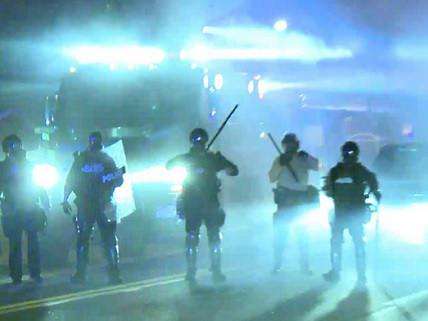Ed Krayewski on Ferguson, Newark, State Violence, Riots, and Democracy

The situation in Ferguson, Missouri, isn't looking much better. On Saturday afternoon a cop who has not been identified shot and killed Michael Brown, an unarmed 18-year old police say was walking in the street. Brown's body was left out in the open for hours—as a warning, some residents said. If it was meant to intimidate, it didn't work. The reaction from the community was immediate—impromptu protests that same afternoon included chants of "Kill the police." By Sunday night, there were protests, followed by rioters, and the now standard set-piece, the militarized police. The same happened on Monday, and on Tuesday, and on Wednesday, when cops assaulted multiple journalists, arrested at least 16 people, including a St. Louis alderman covering the protests on Twitter, clashed with protesters, and generally acted pretty close to the way an occupying force might when faced by indigenous resistance. Were people shooting at cops? It didn't look like it. Protests were largely peaceful. The police were not. On Wednesday night, Missouri's Democrat governor, Jay Nixon released a statement "urging" law enforcement to respect the rights of residents in Ferguson. He excused police actions this week as in the interests of "protecting the public." The limp statement was excoriated by activists following events in Ferguson, Missouri, and, writes Ed Krayewski, rightly so. How could a governor merely urge local cops to respect rights? But would sending in the National Guard instead be better?


Show Comments (0)